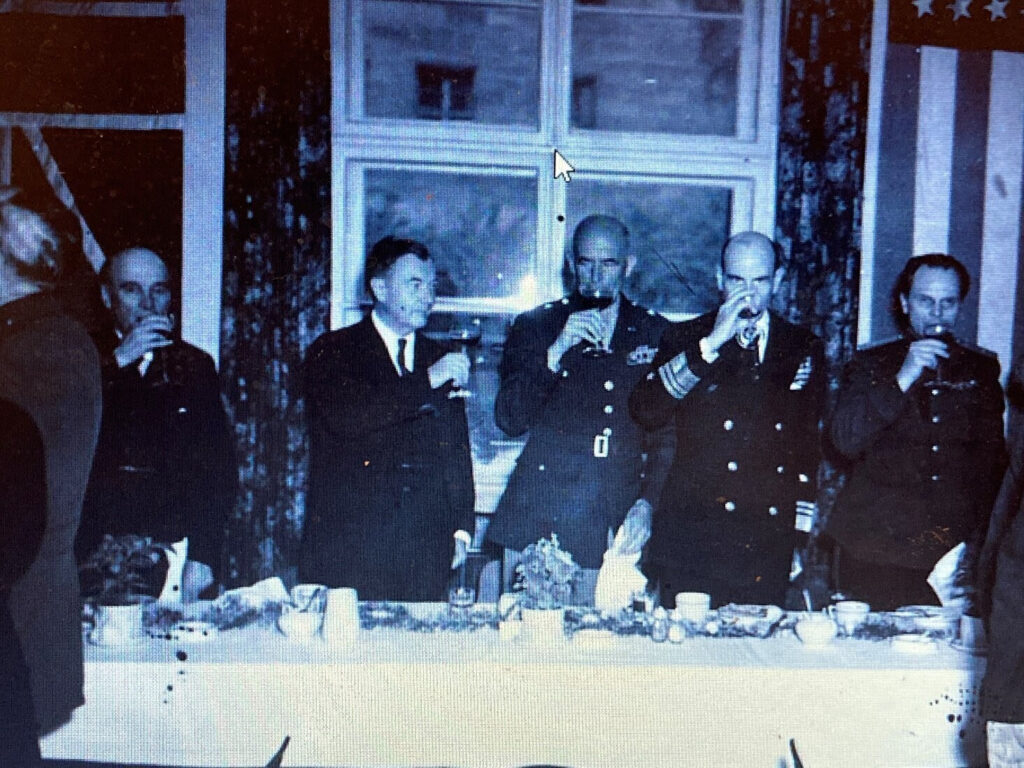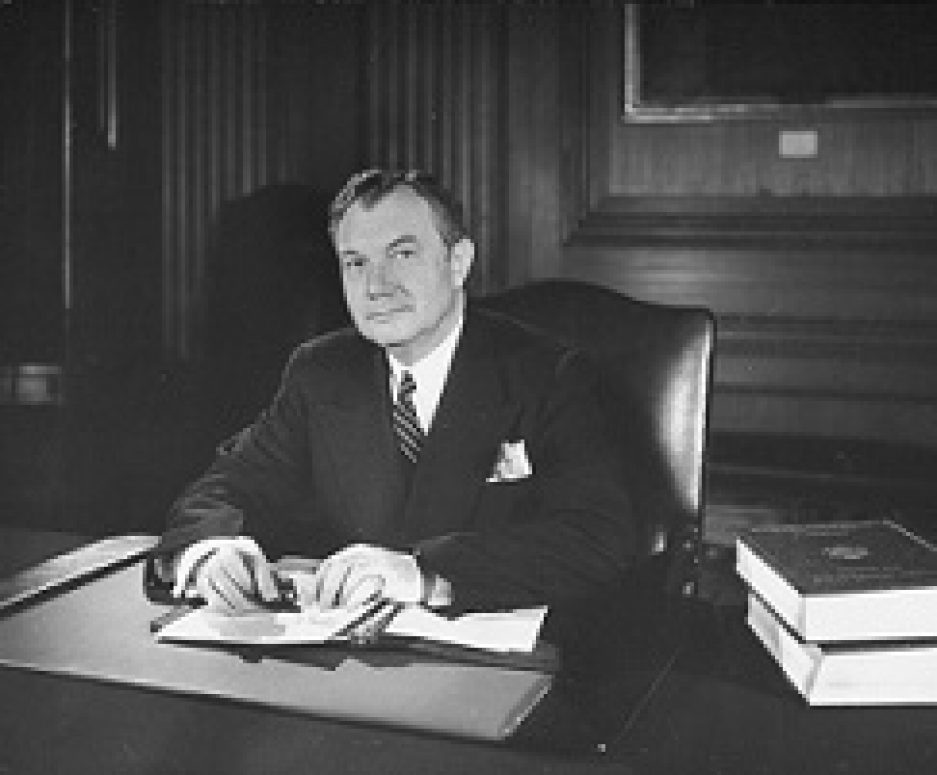Today, May 8, 2024, marks the 79th anniversary of the Allied nations’ World War II victory over Nazi Germany. It is Victory in Europe (VE) Day.
Germany’s unconditional surrender first occurred on May 7, 1945, at “the little red schoolhouse” in Reims, France. It was Supreme Headquarters of the Allied Expeditionary Force (SHAEF). German General Alfred Jodl, acting with authorization from Admiral Karl Doenitz, Germany’s head of state since Adolf Hitler’s suicide a week earlier, signed at Reims an instrument surrendering all German military forces. U.S. Army General Walter Bedell Smith, chief of staff to Supreme Allied Commander General Dwight D. Eisenhower, signed for the Allied Expeditionary Force. Major General Ivan Susloparov signed for the Soviet Union. General Francois Sevez signed for the commander of French expeditionary forces.
The next day, May 8, Germany surrendered a second time, this time in Berlin. It was controlled by Soviet armed forces. Three German officers, Colonel-General Hans-Jurgen Stumpff of the Luftwaffe (air force), Field Marshal Wilhelm Keitel of the Wehrmacht (army), and Admiral Hans-Georg von Friedeburg of the Kreigsmarine (navy), signed and presented to Soviet Marshal Georgy Zukhov a slightly modified version of the Reims surrender instrument.
* * *
A year later, on the first anniversary of VE Day, Allied representatives were working together in Nuremberg, prosecuting before their International Military Tribunal (IMT) the principal surviving Nazi leaders for crimes of planning and waging aggressive war, of committing war crimes, and of committing crimes against humanity.
The Nuremberg trial had begun almost six months earlier, in late November 1945. By May 1946, the four allied nations had presented their prosecution cases. The twenty-one defendants, including Jodl, Doenitz, and Keitel, were, through defense counsel, presenting their cases. Their defense lawyers were calling witnesses to testify and putting favorable documents into evidence.
On Wednesday, May 8, 1946, the IMT morning proceedings featured lawyers arguing about documents. Doenitz’s skillful lawyer Otto Kranzbuehler responded to prosecution objections to documents that he proposed to introduce. British prosecutor David Maxwell Fyfe responded to Kranzbuehler, at length.
At midday, the IMT recessed for a special luncheon. In the Palace of Justice courthouse, the legal staffs commemorated VE Day, the military victory that was the predicate to their work holding individual Germans accountable for their war crimes.
At the luncheon, following a fruit cup course, the U.S. chief prosecutor, Justice Robert H. Jackson, rose to speak. He toasted VE Day. The assembled personnel—judges and lawyers—raised their glasses to their nations and the allied united nations, World War II’s military victors.

The Soviet judge, General Iona Nikitchenko, then offered his own toast. With visible glee, he said, “This day has an even greater significance to me. Let’s drink instead to the birthday of the President of the United States, Mr. Harry Truman.” Nikitchenko was noting an anniversary—President Truman’s 62nd birthday—that no one else had remembered.
Following the luncheon, the trial resumed. The afternoon proceedings included attorney Kranzbuehler calling his client, defendant Doenitz, to the stand to begin testifying in his own defense.
Justice Jackson’s executive assistant, his son William E. Jackson, commented later that day on the VE Day anniversary, and on the propriety of the international criminal trial that the Allies were conducting at Nuremberg. Bill Jackson thought:
- that it was fitting that just one year after VE Day, Doenitz, Hitler’s successor, was on trial for his life;
- that Doenitz was doing a good, if slow, job of defending himself; and
- that defense attorney Kranzbuehler, Doenitz’s Allied-funded counsel of choice, was the best of the Nuremberg defense lawyers—Bill Jackson called him the prosecutors’ “hardest nut to crack.”
* * *
In Fall 1946, the IMT found Alfred Jodl guilty of four international crimes–conspiracy; aggressive war; war crimes; and crimes against humanity–and he was hanged.
The IMT also convicted Wilhelm Keitel of the same crimes and he was hanged.
The IMT found Karl Doenitz—the former German May 1945 head of state who had agreed to surrender, and then Otto Kranzbuehler’s client at Nuremberg—not guilty of conspiracy and guilty of war crimes and crimes against humanity. The IMT sentenced Doenitz to ten years in prison. After serving his sentence, he lived in West Germany, dying in 1980 at age 89.
